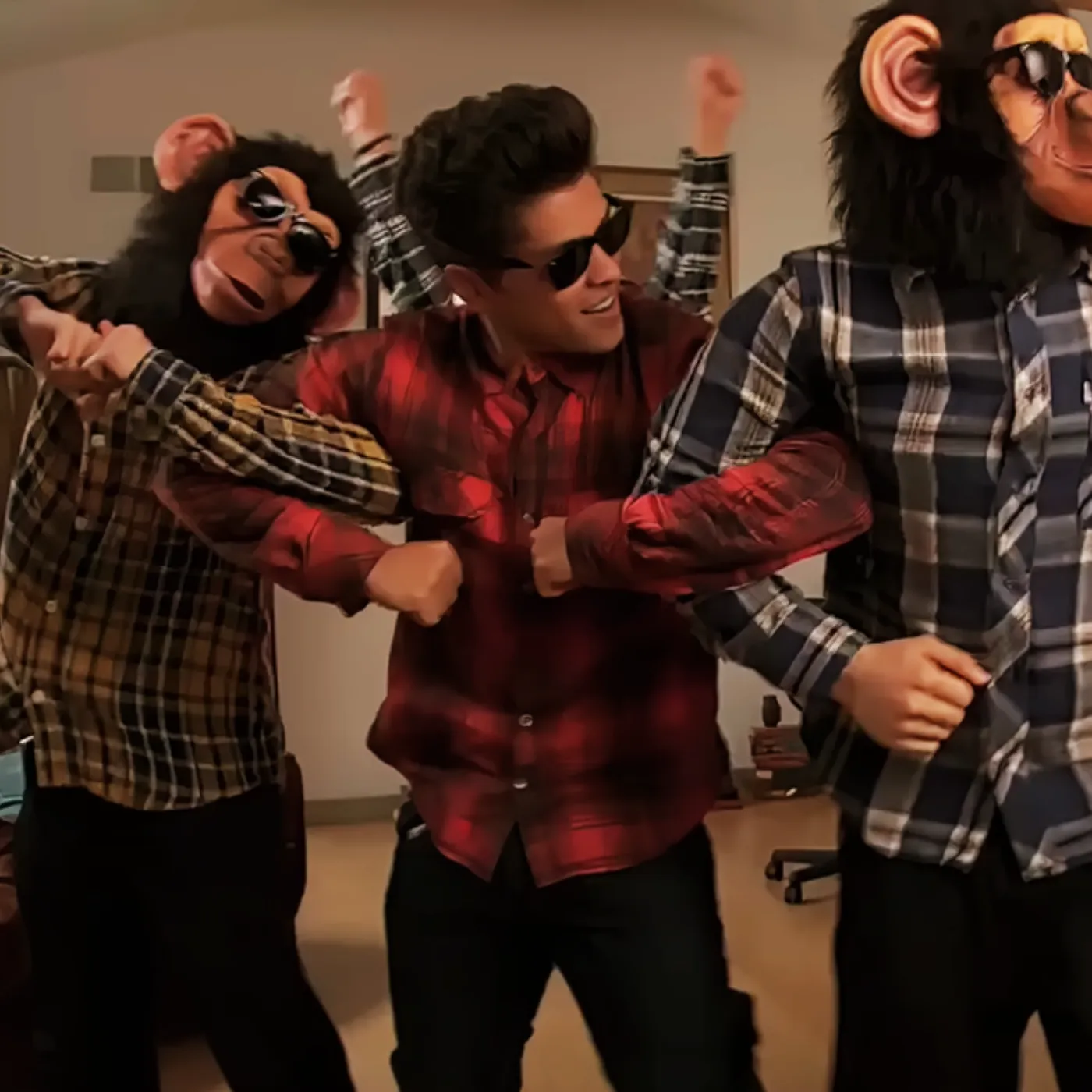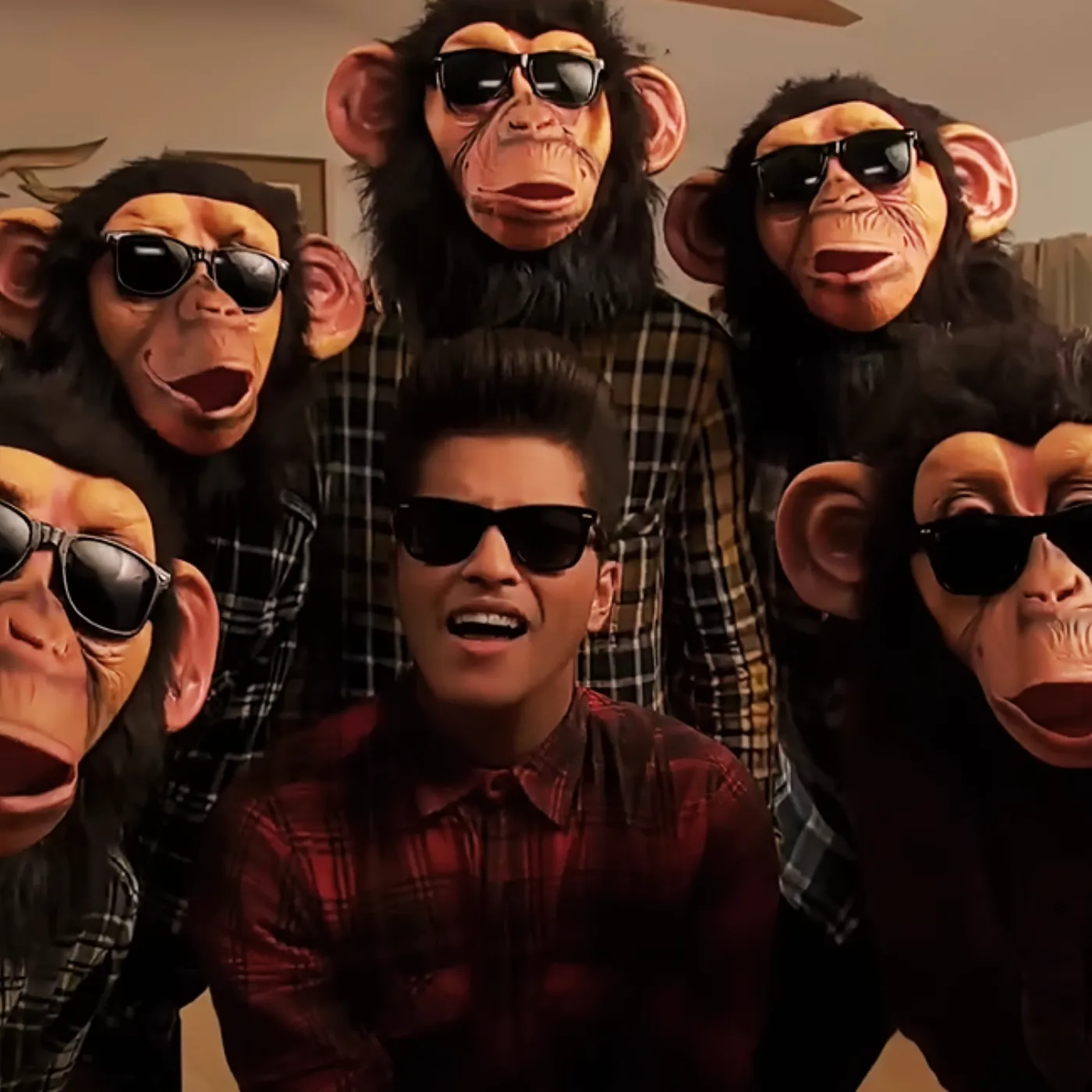

Bruno Mars Never Wanted The Lazy Song to Become a Hit and Here’s the Proof
Bruno Mars has been praised as one of the most versatile and talented artists of his generation. His ability to shift between genres, blend influences, and craft catchy melodies has earned him comparisons to legendary musicians, including The Beatles. However, not every song he writes follows in their footsteps. One of the most fascinating moments in his career was when he consciously decided to abandon the influence of The Beatles while writing “The Lazy Song.”

This decision wasn’t just a casual shift in style—it was a deliberate move that revealed a lot about his evolving approach to music and the industry itself. While The Beatles have been an undeniable inspiration to countless artists, Mars realized that chasing their songwriting style was limiting his own artistic freedom.
The Beatles’ Influence on Bruno Mars’ Early Work
Throughout his early career, Mars wore his inspiration on his sleeve. His debut album, Doo-Wops & Hooligans (2010), was filled with nostalgic influences, blending classic pop, reggae, and R&B with a modern twist. Songs like “Just the Way You Are” and “Grenade” showcased deep, emotional lyricism reminiscent of The Beatles’ more heartfelt ballads.
Mars has openly discussed his admiration for legendary bands and how he studied their songwriting structures. The Beatles, known for their intricate melodies, storytelling, and revolutionary soundscapes, had set a gold standard for pop music. Many artists, including Mars, initially aimed to replicate their magic. However, he soon discovered that this approach came with its own set of challenges.
Why “The Lazy Song” Was Different
When Mars sat down to write “The Lazy Song,” he wasn’t in the mood for deep lyrical explorations or poetic introspection. Instead, he wanted to create something light, carefree, and completely unserious—a song that captured the universal feeling of wanting to do absolutely nothing.
This is where The Beatles’ influence hit a wall. While The Beatles had their fair share of whimsical and playful songs (“Yellow Submarine” and “Ob-La-Di, Ob-La-Da”), their music often carried layers of meaning, social commentary, or experimental sounds. Mars realized that for “The Lazy Song” to truly stand out, he had to let go of overcomplicating the songwriting process and strip it down to its most basic form—something fun, simple, and instantly relatable.
The Industry’s Expectations vs. Artistic Freedom
At the time of writing “The Lazy Song,” Mars was still proving himself as a commercial powerhouse. The pressure to create hit songs was immense, and many industry executives expected artists to follow established formulas. If an artist could craft something with the complexity and genius of The Beatles, why wouldn’t they?
But Mars had a different perspective. He saw the industry becoming too obsessed with “artistic depth” and decided to push back against the norm. He embraced the idea that not every song needs to be profound. Sometimes, music should simply be enjoyable.
By moving away from The Beatles’ songwriting style, he gave himself permission to be playful and experimental in a way that felt more natural. This shift in mindset wasn’t just about “The Lazy Song”—it became a larger part of his career’s philosophy.

The Commercial Success of a Simple Song
When “The Lazy Song” was released, it became an instant hit. It peaked at No. 4 on the Billboard Hot 100 and was certified multi-platinum worldwide. Fans connected with its straightforwardness, catchy whistling hook, and humorous lyrics. It was proof that a song didn’t need intricate storytelling or deep themes to succeed—it just needed to resonate with people.
Mars’ decision to break free from traditional songwriting expectations paid off. “The Lazy Song” proved that simplicity could be powerful and that authenticity—no matter how unconventional—was key to success.
Critics vs. Fans: The Divisive Reaction
Of course, not everyone was thrilled with “The Lazy Song.” Critics were divided, with some praising its carefree nature and others dismissing it as lazy songwriting. Some music purists argued that Mars was “dumbing down” his work instead of striving for the legendary status of past greats. However, fans saw it differently.
The song’s viral success on platforms like YouTube (where the music video has over a billion views) demonstrated that people craved music that didn’t take itself too seriously. Mars wasn’t trying to prove anything—he was just having fun, and that authenticity is what made the song last.
How This Decision Shaped Bruno Mars’ Career
Stepping away from The Beatles’ influence on “The Lazy Song” didn’t mean Mars abandoned complexity in his later work. Instead, it gave him the confidence to experiment with different musical styles without feeling pressured to fit into a specific mold.
His later albums, including Unorthodox Jukebox and 24K Magic, showcased this artistic freedom. Whether it was the throwback funk of “Uptown Funk” or the silky smooth R&B of “Versace on the Floor,” Mars had fully embraced his own sound.
By letting go of traditional expectations, he solidified himself as a global superstar with a unique voice. He wasn’t just trying to be the next Beatles—he was carving out his own legendary status.
The Psychology Behind Bruno Mars’ Success
One of the reasons “The Lazy Song” connected so deeply with audiences was the psychology of relatability. People are drawn to music that mirrors their emotions and experiences. The idea of taking a break, ignoring responsibilities, and just enjoying the moment resonated across cultures and age groups.
Studies in music psychology have shown that simpler melodies and repetitive structures are more likely to become earworms. Mars tapped into this by creating a song that was unapologetically easy to remember—a track that could get stuck in people’s heads after just one listen.
Beyond that, the humor and self-awareness in “The Lazy Song” made it stand out in an industry that often takes itself too seriously. Instead of aiming for perfection, Mars embraced imperfection—and that honesty is what made the song timeless.
The Evolution of Bruno Mars Post-“Lazy Song”
After “The Lazy Song,” Mars didn’t abandon deeper songwriting altogether, but he did learn to balance fun and artistic depth. His later projects, especially his collaboration with Anderson.Paak on Silk Sonic, showcased his ability to blend humor, storytelling, and musical brilliance into one package.
His performance style also evolved. Instead of chasing aesthetic perfection, Mars leaned into showmanship, charisma, and audience connection. He understood that music is an experience—not just a technical composition.

A Lesson in Artistic Independence
Bruno Mars’ decision to stop writing like The Beatles on “The Lazy Song” wasn’t just about one song—it was about redefining his artistic identity. The music industry often forces artists to chase formulas, but Mars proved that success comes from breaking the rules, not following them.
By refusing to take himself too seriously and prioritizing fun over complexity, he created a timeless hit that still resonates over a decade later. His journey serves as a reminder that in music—and in life—sometimes the best move is to stop trying so hard and just enjoy the process.
This shift in mindset has been the secret behind Bruno Mars’ enduring success, proving that sometimes the best way to make great music is to simply not overthink it.


















